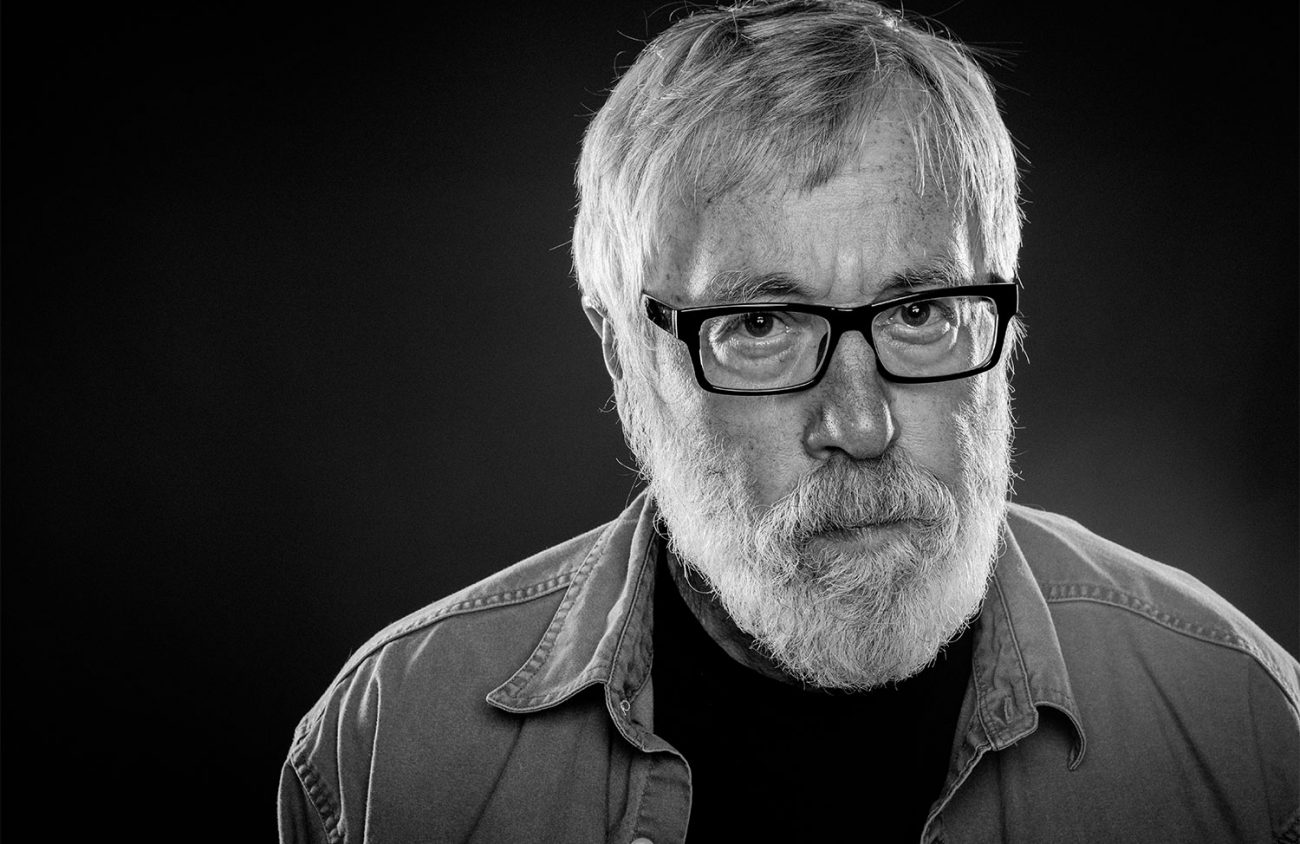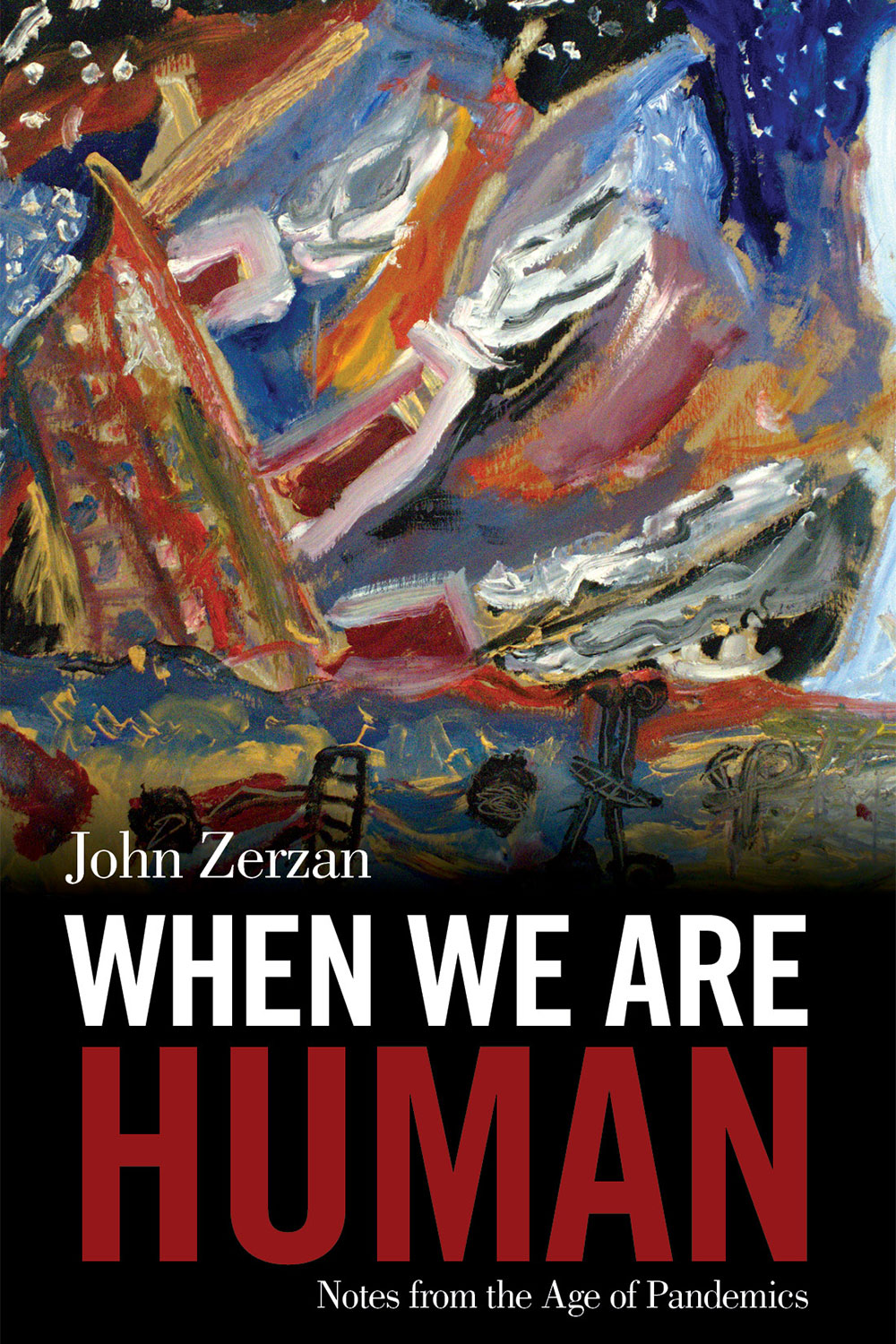Before the pandemic, notable anarcho-primitivist John Zerzan could be found in the University of Oregon’s Knight Library, gathering research for one of his books of essays.
“What I’m more inclined to do is to prowl around in the Knight Library,” he tells Eugene Weekly. “I might be there seven days a week, browsing around; one thing leads to another.”
Then the pandemic hit, closing the library for public use.
To research for his When We Are Human: Notes from the Age of Pandemics, Zerzan, who argues that industrialism is leading us to the end of human civilization, had to rely on the UO’s online academic database.
Zerzan is famous as one of the major developers of the anarcho-primitivism worldview and in 2014 spoke out against a group that tried to inject transphobia into the theory. Put simply, anarcho-primitivism is anti-technology and calls for the abolition of the large-scale industrialization that has distanced humans from our nature. It’s an ideology that was thrown into the mainstream by Ted Kaczynski (also known as the Unabomber), with whom Zerzan had shared anticivilization ideas during his high profile trial and while in prison.
“I think there’s only one civilization left, and this is it, and it’s failing,” Zerzan says. “Maybe we look at certain things anew in that light.”
With the urgency of climate change, Zerzan says civilization needs to reconsider itself and the technologies it relies on because time is running out. “If we plod along as business as usual, it’s a course of suicide,” he says.
When Zerzan refers to technology, he doesn’t mean only computers and smartphones. Throughout the book When We Are Human, he points to the role that factories have had in forcing people away from natural routines, that art is a distraction, and that communicating through symbols — such as text messages and political messages — separates us. “We are in grave danger of being completely dominated and domesticated by technology, the wellspring of a world lacking in both meaning and value,” Zerzan writes in the book.
Zerzan says he discovered anthropology by accident in the 1980s while reading about what hunter-gatherer life was like before farming and domestication. “All of that was a complete revelation to me. It was so utopian,” he says. “People got along so well and had community, they didn’t destroy the planet. It was stable.”
Years later, his work on anti-civilization technologies brought him to correspond with Kaczynski, who mailed bombs for decades before his family turned him in and whose manifesto propelled anarcho-primitivism into the mainstream.
After resigning from his academic post at the University of California, Berkeley, Kaczynski moved off the grid to Montana, where he wrote his manifesto but couldn’t get it published anywhere, Zerzan says. Kaczynski’s manifesto focused on the damages that the Industrial Revolution had on forcing humans away from freedom and meaning, Zerzan says, creating a dependency on technology.
While Kaczynski was on trial and in prison, Zerzan would write and visit him and even appeared on the Netflix documentary series Unabomber: In His Own Words (2020).
Zerzan says that Kaczynski’s living methods aren’t his favorite example to provide as an alternative to civilization. But he appreciates the criticism of civilization found in the manifesto. “That’s one thing I’ve been trying to do, contribute to the critique — minus sending bombs in the mail,” Zerzan says.
Zerzan’s arguments lead to the question of whether this means humans should return to their pre-technological days. Referring to a New Yorker article published in 1995 titled “E Pluribus Unabomber,” he says one way that Kaczynski failed rhetorically is by addressing this question. “Well, when people ask if you want to live in the Stone Age, the answer is yes, in some ways,” Zerzan says. “There were a lot of things we lost over the years.”
Zerzan says he doesn’t have the answer of how to steer away from what could be civilization’s end or how useful he’d be as a hunter-gatherer if civilization ended tomorrow (he does have a small garden, but not enough to be self-sufficient). But technology and industrialism has been used to prevent humans from exercising those hunter-gatherer skills, he says, “it’s an ethos of control” and until it’s interrupted, it’ll keep humans from being able to provide for themselves.
And interrupting the domestication of humans via industrialism has a spiritual part to it, Zerzan says. While in Turkey for a book tour, he says he remembers talking with a woman about “green anarchy,” and it was a sort of awakening for him. “You can kick some ass and destroy the computers and everything else and it is spiritual,” he laughs.
When We Are Human: Notes from the Age of Pandemics and Zerzan’s other books are available through FeralHouse.com.

